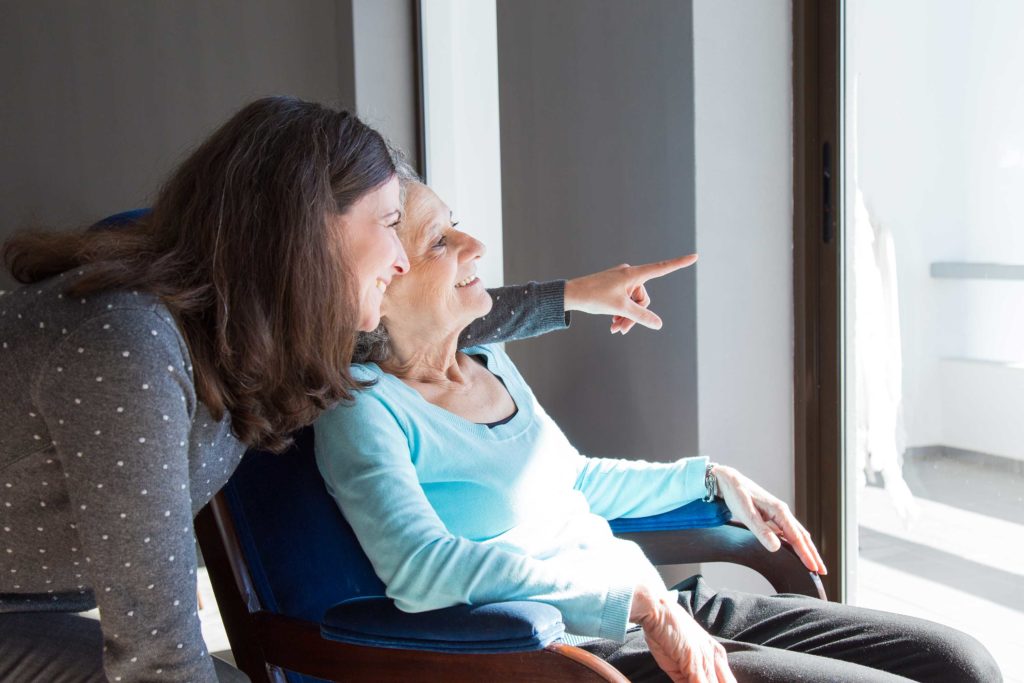The Benefits of In-Home Care for Elderly Adults with Dementia
Caring for an elderly adult with dementia may be challenging however, when you choose in-home care to look after your loved one, the process can be stress-free. In-home care can look after their needs in ways an assisted living facility can’t. It promotes independence and allows loved ones to live comfortably in their own homes. There are many benefits of in-home care for elderly adults with dementia.
Choosing this type of care has the potential to enrich an older person’s life while helping them remain safe at home for as long as possible. By providing personalised attention, these services create opportunities for social interaction, greater independence, and meaningful connections. They help to ensure safety while dealing with health changes associated with dementia.
At Care 24-7, people who use in-home care services range from elderly people, those with physical disabilities, people with dementia, those who are nearing the end of their life and those returning from a stay in hospital.
This offers respite for family carers and gives them the peace of mind that their loved ones are being taken care of with respect and kindness in the comfort of their own homes.
Find Out More
Familiar Surroundings
Being in a familiar environment can provide a sense of comfort and security for individuals with dementia. This is less disorienting than a move to an assisted living facility, which can lead to unease because of such a drastic change in life. Maintaining a schedule similar to the one they followed prior to their diagnosis can help reduce anxiety and confusion while improving overall well-being.
Did You Know?
The person most often diagnosed with dementia is a grandparent or parent / step-parent.

Care 24-7’s dementia care service is led by a SPECAL Practitioner trained by the Contented Dementia Trust at their Centre of Excellence at Burford. They are trained to understand the disability of dementia from the perspective of the person with the condition and to deliver coaching to all those who come into contact with them. A SPECAL practitioner can then provide the help needed for that particular person based on what is familiar to them and what matters the most in their life.
Independence

The key to maintaining independence for those living with dementia is an early diagnosis followed by an individual care plan that considers nutrition, physical exercise, and mental stimulation. In-home care allows individuals to maintain as much independence as possible by promoting these 3 factors.
Nutrition: This should include fresh fruits, vegetables, and whole grain foods.
Physical Exercise: Light exercise such as walking or Tai Chi can be beneficial.
Mental Stimulation: This can include word games or creating art.

An in-home carer can provide the skills needed to perform tasks and assess their needs based on what stage their dementia is at. The carer ensures there is a good balance between being helpful and supportive whilst allowing your loved one to remain independent for as long as possible.
Personalised Care
In-home care allows for the development of a personalised care plan that is tailored to meet the specific needs of the individual with dementia. In-home care can also reduce the risk of infection, which is especially important for individuals with dementia who may be more susceptible to illness. Personalised care is individualised to meet the specific needs of the person with dementia, and can include:
– Assistance with activities such as meal planning, bathing and dressing.
– Medication management to ensure that the person is taking their medication correctly.
– Safety monitoring to ensure that the person is safe – and secure in their home.
– Assistance with transportation to appointments and other activities.
At Care 24-7, the first step would be to work closely with your loved one to develop a person-centred Individual Care Plan that will take into consideration their wishes and preferences regarding their personal home care needs. This technique easily translates into a set routine for dementia patients who thrive on familiarity and repetition.
Cost-Effective
In-home care is often less expensive than other forms of care, such as assisted living or nursing homes. The cost of in-home care will depend on a number of factors, such as the level of care required and the provider. In-home care can range from a few hours of help per week to around-the-clock care, meaning costs is dependent on the circumstances. Assisted living facilities typically have a set monthly fee which can include room, meals, and various activities and services.
Factors that can affect the cost of care
– The home modifications your loved one needs such as handrails and alarm systems.
– Whether medical or non-medical care is required. Medical includes physical therapy while non-medical includes household duties.
You may be entitled to some level of funding to finance your care needs. Speak to your Local Authority for an assessment of your financial situation and request a “care needs assessment”.
It’s always recommended to consider the specific needs and preferences of the elderly person and your budget. Additionally, it’s important to check if the costs are covered by insurance, as it can help with the expenses. By carefully evaluating the costs and benefits of both options, you will be in a better place to make a good decision.
Family Involvement

In-home care allows family members to be more involved in the care of their loved ones, which can provide emotional support and peace of mind. With in-home care, families are more confident that their loved one will receive individualised attention and guidance from a seasoned caregiver on matters related to health, nutrition, and activities of daily living.
Additionally, in-home care allows family members to remain actively involved in important aspects of their loved ones’ life, such as interacting with doctors and managing financial items. As peace of mind is essential for seniors and their families alike, in-home care certainly provides that for them.
The above benefits can help with the stress and uncertainty of having a loved one with dementia. They serve to alleviate any worries knowing that help is on-hand from the comfort of their own home.



















